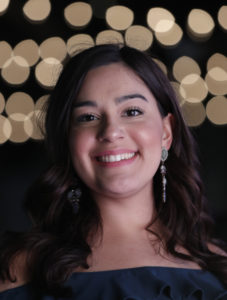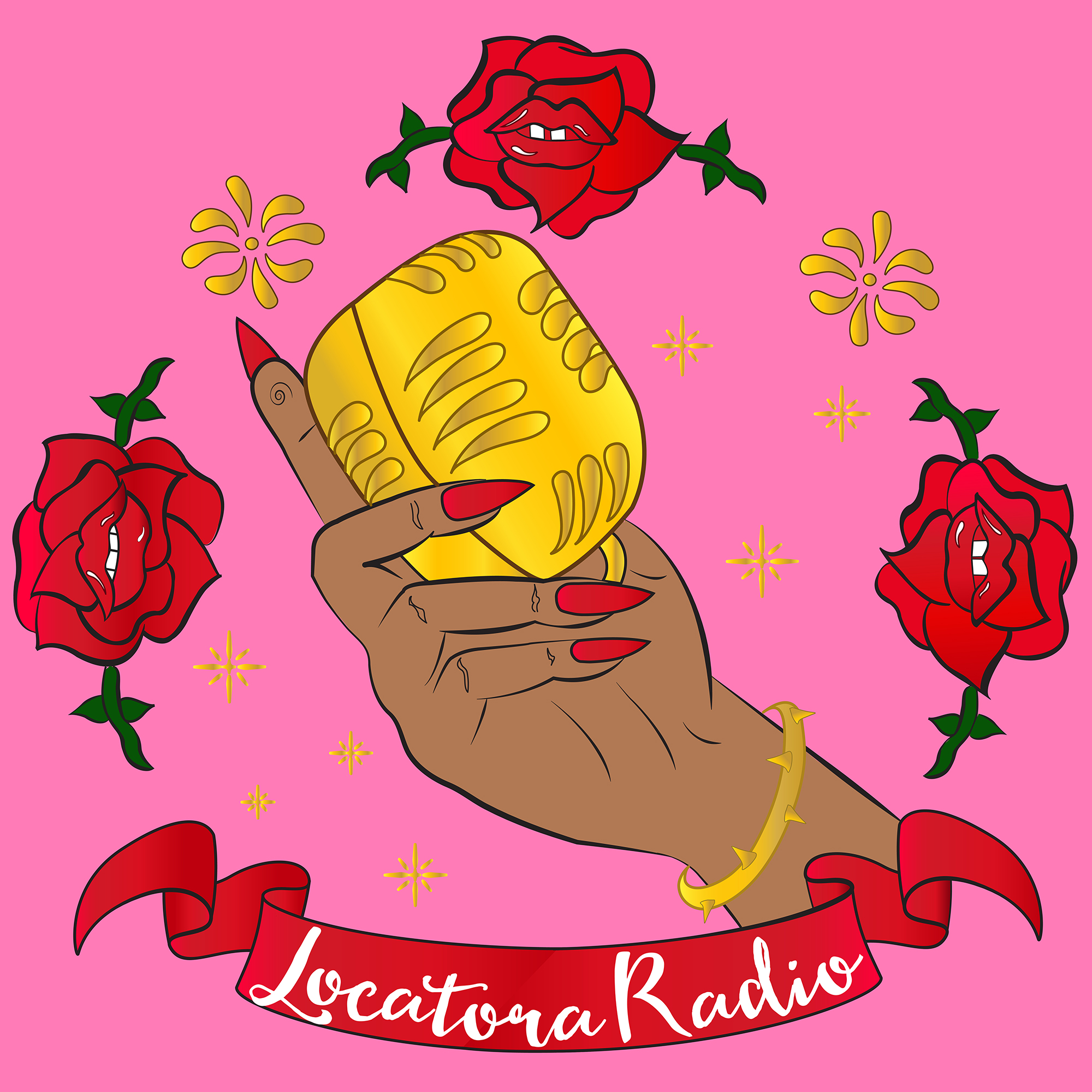Locatora Radio podcast tackles taboo of mental illness among Latinos
They call themselves locas, these two Latinas from Los Angeles, who hope to change the way people talk about mental health issues and what it means to be a crazy woman.
To do this, Zoe Muñoz and Ariana Rodriguez Zertuche have given themselves new names — Mala Muñoz and Diosa Femme, respectively — and crafted an identity and a podcast around combating the stigma of mental health in Latino communities, making honest conversation as commonplace as the word loca.
In the Latino community, loca is used often and freely to describe someone who does or says things out of the cultural norm or as a playful jab. What’s not approached so effortlessly, medical experts said, are conversations about mental health.
But on Muñoz’s and Femme’s podcast, “Locatora Radio,” that conversation is central to the mission of the show.
“We wanted to put the very real way that the term is used to silence and stigmatize survivors and reclaim it,” Muñoz said of incorporating the word “loca” in the title of their show, a riff on the word “locutor,” which means radio host in Spanish.
Thanks to technology innovations that have made new media, like podcasts, accessible to almost anyone with a smartphone or computer, content creators like Muñoz and Femme can bring these stigmatized conversations out of people’s homes and into the ears of thousands via the Internet.
Broadcast from a small radio booth inside Espacio 1839, a storefront in the heart of Boyle Heights, LA, Locatora Radio has as many as 4,000 listeners each episode, its hosts said, plus 5,000 followers on photo- and video-sharing app, Instagram.
It may also address one of the biggest problems plaguing the Latino community, said Rebecca Carillo, a community psychiatrist from Berkeley: access.
“The main barrier is access, whether it’s access due to language, or access due to misinformation,” said Carillo, who works mainly with people who have chronic and severe mental illness. “It’s already very difficult for a family, even when they are the most informed, to provide support for their family members.”
Muñoz and Femme hope their podcast can help smooth out the dialogue.
The two call the podcast a community effort and vow to make each installment, or capítulo, a space for peeling away the layers of mental health in the communities in which they work. Muñoz is a case manager and rape crisis counselor at a local agency in LA, and Femme is a community organizer who advocates for immigrant women and women of color.
“It’s no secret that we’re not allowed to talk about it,” Femme said of what she described as a widespread hesitation to discuss mental health issues in the Latino community. “There’s this idea that it’s a white people problem or that if you stay busy and you work really hard then you have no time to be depressed.”
Black and Latino individuals use mental health services at about half the rate of white Americans, according to data from the National Alliance on Mental Illness.
“A lot of times when people are dealing with mental health, a crisis, or trauma, sometimes what we do in our communities is we associate that with a lack of God or a lack of connection to your faith,” added Muñoz, whose writing on the topic has appeared in the Huffington Post and Vibe magazine. “Particularly when you’re a woman of color, you’re really only considered valuable or important if you’re working or laboring… we don’t have the luxury sometimes of being able to take care of our mental, physical and spiritual well-being.”
Cindy Cruz, an associate professor of education and critical youth studies at the University of California, Santa Cruz, who works with lesbian, gay, bisexual, transgender and queer homeless youth in LA, said these ideas can cause people to blame themselves when they are in crisis.
“It keeps things at this weird individual level,” she added. “I think that’s so unhealthy…We need to be thinking with our families and with others and with our communities to see the toxicity that’s there, and to be critical of it and to find solutions for it.”
Only about 20 percent of Latinos bring up psychological concerns with their primary doctor, according to NAMI, compared to 40 percent of white Americans who do. The organization points to a lack of information and misunderstanding, language barriers and an overreliance on natural medicine and spirituality as reasons for why Latinos do not seek treatment.
“We don’t have enough mental health people that speak Spanish,” Cruz said. “Ideally, we need providers who are not only bilingual but also educated in our narratives of migration, trauma and acculturation issues.”
When educating people about mental health, she said, it is important to also focus on how people have the power to overcome crisis.
“What I try to do is show their resilience of it,” Cruz said. “I try to get away from these notions of them being these big victims.”
That is another reason why Femme and Muñoz came up with Locatora Radio: to reclaim power for victims.
“We can’t be interrupted, no one can talk over us, especially rape apologists, or racists, or misogynists, or xenophobes, or men, because it’s happening in a bubble in some ways,” Muñoz said, adding that a lot of what they talk about on their show is influenced by her writing about Latina artists and creators. “We get to get our thoughts out without some body barging in and interrupting.”
The podcast hasn’t always been warmly received.
In their own community, Muñoz and Femme said people sometimes feel attacked and react defensively because starting the conversation can be hard for some. The topics they discuss they said defy the otherwise avoidance or dismissal that can come from dialogue surrounding mental health, forcing people to confront issues and feelings they may not yet be comfortable with.
“Everything that we talk about is done out of love,” Muñoz said. “It’s out of deep respect for our communities and our cultures, and wanting to see us do better, wanting to see everyone in our community safe from violence and trauma.”
“One of our listeners says that she shares it with her young men of color that were formerly incarcerated or also convicted sexual offenders,” Femme added.
Another fan told the hosts through Twitter that the podcast helps her be a better mother and gives her something to share with her 16-year-old daughter.
Cruz and Carillo praised Muñoz and Femme for putting what they said is a genuine discussion of mental health issues on the radio.
“Maybe they give people a recipe to get better or find services or get help,” Cruz said. “I think, that’s just what we need.”
Locatora Radio can be found on Soundcloud.

Ever since she was a little girl, Chelsea Moreno knew she wanted to be a storyteller.
Born in El Paso, Texas, she grew up speaking and writing in Spanish and English, skills she hopes will advance her career.
A senior at the University of Texas at Austin, Moreno is majoring in journalism with a minor in Latino media studies. Moreno has served as the news director at Texas Student Television, where her specialties are writing, editing, and making graphics.
When she’s not chasing stories and producing shows, she’s at church. God and family are very important for her, and she tries to visit her hometown as often as possible.
She hopes that participating in the Student Projects will give her a chance to learn from those who have been in the business for years.
In the future, she sees herself as TV producer.

